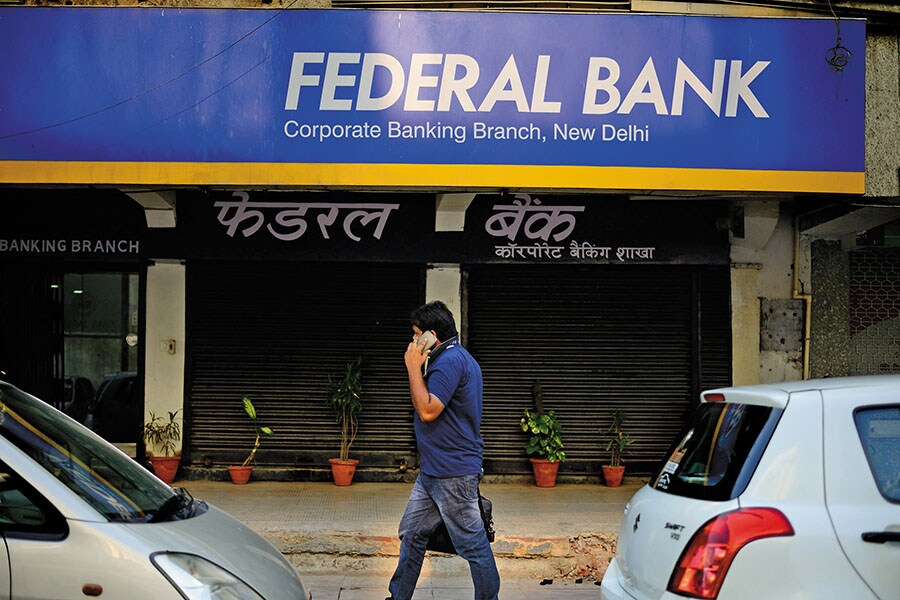Flood impact: Federal Bank raises red flag
Loans could turn bad, lending portfolio will be hit


 Image: Pradeep Gaur / Mint via Getty Images
Image: Pradeep Gaur / Mint via Getty Images
Following the worst floods that Kerala has faced in nearly a century, banks and non-banking financial companies—which lend to retail, agri-business, corporate and small and medium enterprises (SMEs)—could take a hit. Some, such as Federal Bank, South Indian Bank, Muthoot Capital and ESAF Small Finance Bank, have been hit and their recovery will be closely watched.
Federal Bank has 47 percent of its branches in Kerala. Its loan book stood at Rs 97,381 crore in Q1FY19, of which Kerala accounts for just over 30 percent. The bank spoke to financial analysts about how the floods had affected business. Sixty of the bank’s branches are in the affected areas, and have a credit exposure of Rs 1,500 crore cases of loans turning bad could rise by 20 to 30 percent in the next two to three quarters.
“The bank’s agri and SME portfolio will get impacted,” says Alpesh Mehta, banking analyst at Motilal Oswal. Federal Bank lends to agri enterprises related to plantations, horticulture, land development, irrigation, farm mechanisation and construction of rural warehouses.
First Published: Aug 26, 2018, 11:40
Subscribe Now